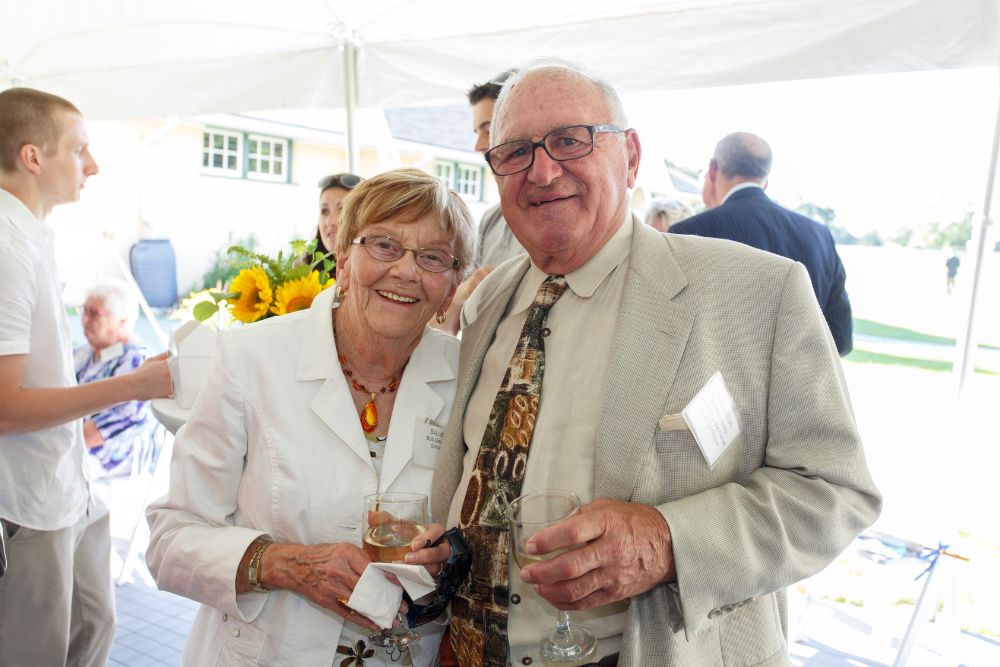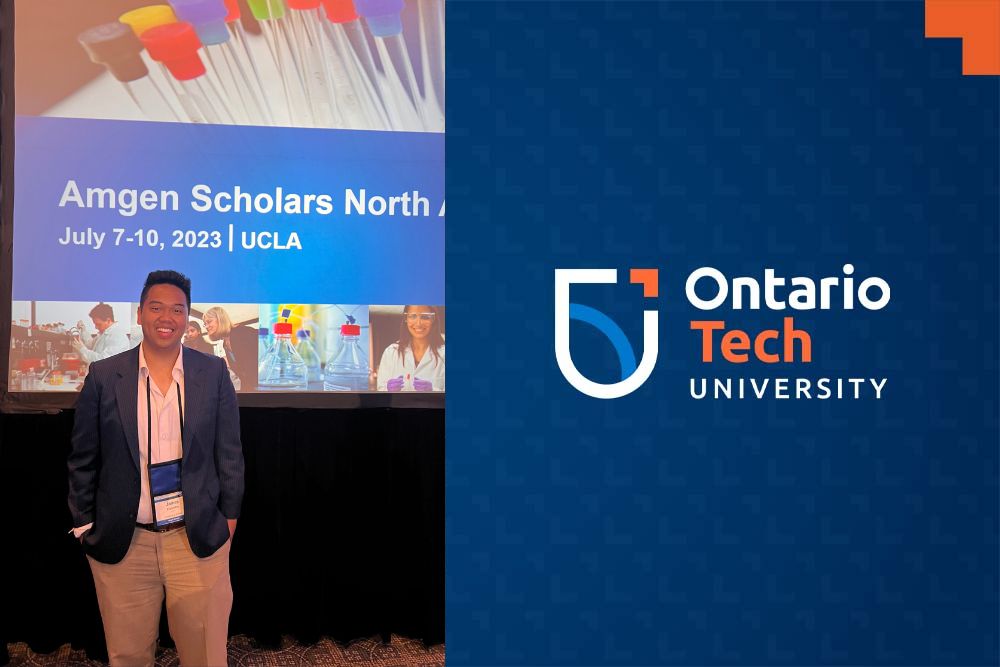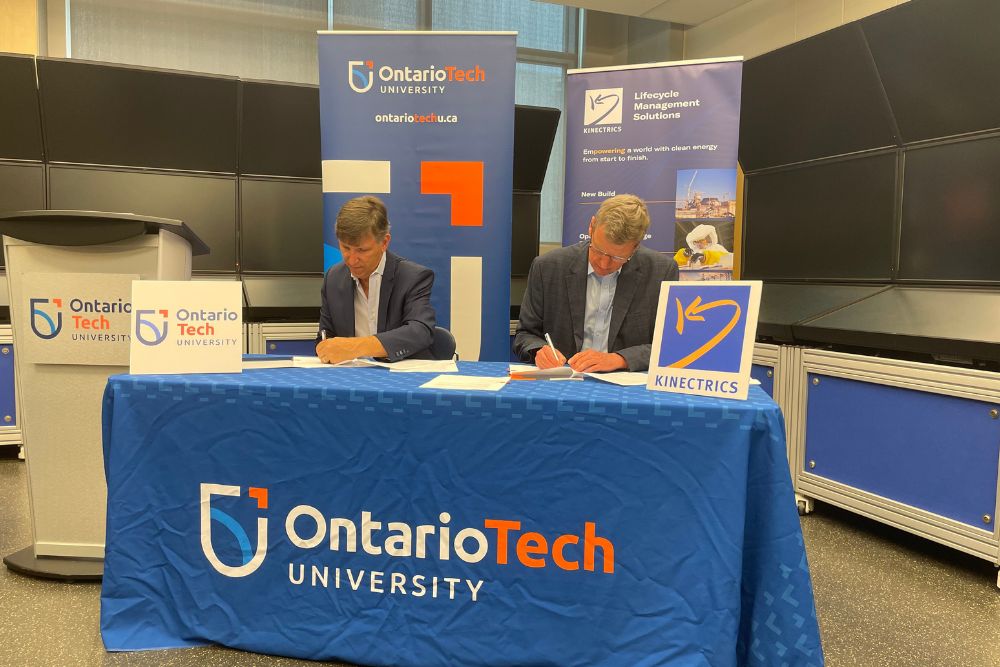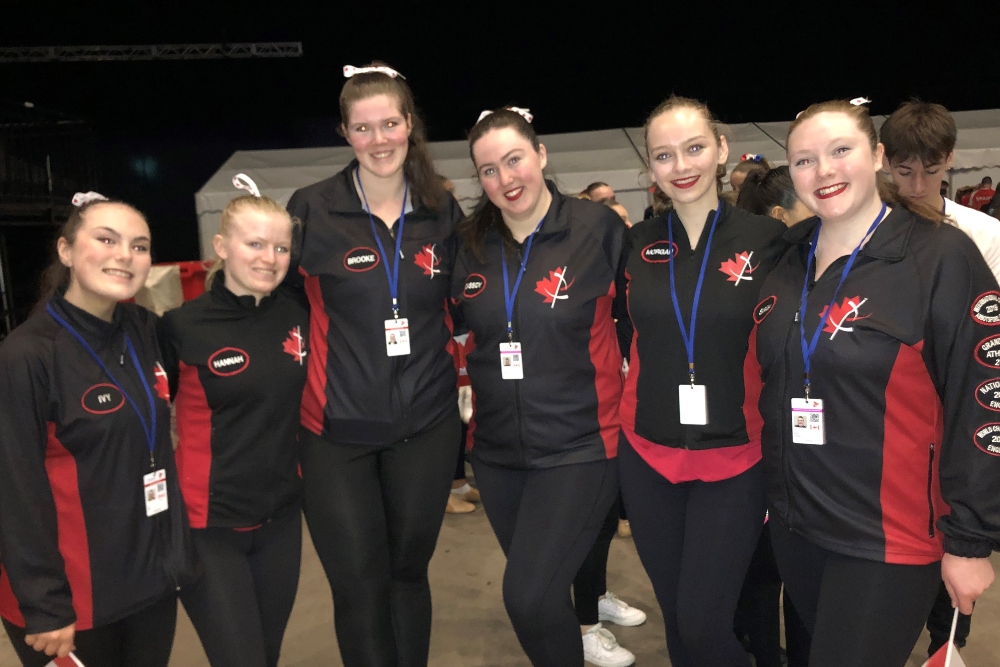Seven graduates join ranks of the Durham Regional Police Service
June 13, 2017
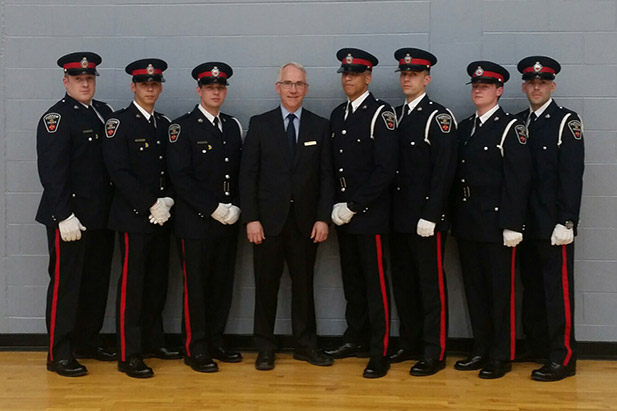
The University of Ontario Institute of Technology proudly recognizes seven recent graduates who are new recruits of the Durham Regional Police Service (DRPS). All recently completed formal training at the Ontario Police College (OPC) in Aylmer, Ontario.
- Melissa Berney, Criminology and Justice (class of 2015)
- Dylan Dever, Criminology and Justice (class of 2012)
- Stephen Gillings, Criminology and Justice (class of 2016)
- Joseph McLellan, Criminology and Justice (class of 2015)
- Eric McKenzie, Criminology and Justice (class of 2012)
- Wallace Peddle, Commerce, Finance major (class of 2012)
- Daniel Robertson, Forensic Psychology (class of 2015)
These days, many new police officers have previously completed a post-secondary education program. Of the 74 recruits hired by DRPS since 2015, 39 have a university degree.
The journey to becoming a police officer begins with the province’s Constable Selection System and obtaining an Ontario Association of Chiefs of Police certificate. The process has eight stages, which can take anywhere from two to six months to complete. Successful candidates then apply for constable job postings with services such as DRPS.
Upon hiring, new officers go through a rigorous training regimen:
- Prior to beginning OPC: two weeks at the Police Education and Innovation Centre (PEIC).
- 13 weeks at OPC: Basic Constable Training Course requires passing grade of 75 per cent on all components and academic exams.
- Five weeks back at the PEIC where recruits are sworn in as fourth-class constables.
- Practicum with a coach officer assigned to a shift (three to four months).
- Independent patrol with a further 12 months as a probationary officer.
Selected graduate testimonials
Melissa Berney
“My program prepared me for becoming a police officer because it gave me a great opportunity to experience policing through my practicum placement. This was a huge factor in my getting hired by the Durham Regional Police Service. I still keep in touch with my practicum team to this day.”
Dylan Dever
“The university prepared me for becoming a police officer because my program allowed me to develop many lasting relationships within the community and region in the field of Criminology.”
Stephen Gillings
“University prepared me for becoming a police officer because it solidified some key proficiencies needed to be successful as an officer: leadership, good time management, strong work ethic, enhanced communication and organization skills.”
Joe McLellan
“The University of Ontario Institute of Technology prepared me for a career in policing because of the vast critical thinking and outside-the-box thinking require to succeed in the program.”
Wallace Peddle
“The skills I honed in university were definitely transferable to my new career in policing. My elective courses in social sciences, psychology, political science and philosophy really shaped how I see the world around me. I was able to gain experience in a very diverse culture with people of different backgrounds working together for a common goal.”
Daniel Robertson
“The University of Ontario Institute of Technology prepared me to become a police officer by encouraging me to develop critical-thinking skills throughout my upper-year forensic psychology courses. As policing is based on communication, my professor, Joseph Eastwood, PhD, educated me on interviewing tactics applicable to any conversation.”
Interested in exploring a policing career after completing a university degree?
The DRPS Recruiting Team offers monthly Police Information Sessions and Female Practice Prep Sessions. Many successful applicants have attended these sessions in the past.
Upcoming session:
- Police Information Session: Wednesday, June 14, Ajax Community Centre, HMS Room.
Full information about all sessions is available in the Careers section of the DRPS website.
